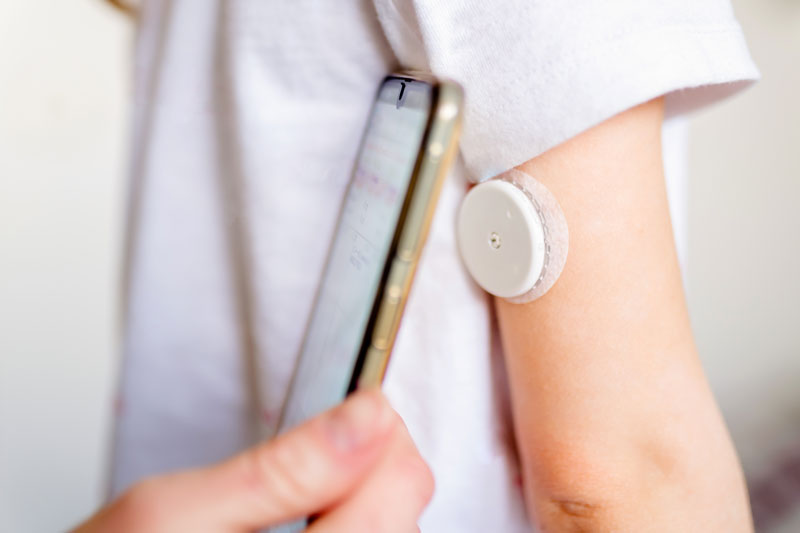What is Type 1 Diabetes?
Type 1 diabetes is a chronic autoimmune disorder in which the body’s immune system attacks and destroys the insulin-producing cells (beta cells) in the pancreas.
Insulin is a hormone that regulates blood sugar levels, allowing cells to use glucose for energy. Without insulin, glucose builds up in the blood, leading to high blood sugar levels, which can cause a range of complications.
Type 1 diabetes typically develops in childhood or adolescence, but it can occur at any age.

What Causes Type 1 Diabetes?
The exact cause of type 1 diabetes is unknown, but it is an autoimmune disorder in which the body’s immune system mistakenly attacks and destroys the insulin-producing beta cells in the pancreas. Genetics and environmental factors may play a role in the development of type 1 diabetes.
Genetic factors: People with certain genes may have a higher risk of developing type 1 diabetes. However, having these genes does not necessarily mean that a person will develop the condition
Environmental factors: Environmental factors, such as exposure to viruses or certain chemicals, may trigger the onset of type 1 diabetes in people with a genetic predisposition. One theory is that a viral infection may trigger the immune system to attack the beta cells in the pancreas.
Type 1 diabetes is not caused by lifestyle factors, such as eating too much sugar or not exercising enough.
Symptoms of Type 1 Diabetes
The symptoms of type 1 diabetes may develop quickly over a few weeks or even a few days. The most common symptoms include:
- Increased thirst: Feeling thirsty all the time, even after drinking plenty of fluids.
- Frequent urination: Needing to urinate more often than usual, including during the night.
- Extreme hunger: Feeling hungry all the time, even after eating.
- Unexplained weight loss: Losing weight without trying, despite eating a normal or increased amount of food.
- Fatigue: Feeling tired or weak all the time, even after getting enough rest.
- Blurred vision: Having blurry or distorted vision, or experiencing sudden changes in vision.
- Tingling or numbness: Experiencing tingling or numbness in the hands or feet.
In severe cases, untreated type 1 diabetes can lead to a life-threatening condition called diabetic ketoacidosis (DKA), which can cause symptoms such as rapid breathing, abdominal discomfort, confusion, and loss of consciousness. If you experience any of these symptoms, seek medical attention immediately.
Treatment Options for Type 1 Diabetes
The main treatment for type 1 diabetes is insulin therapy. This involves replacing the insulin that the body can no longer produce. There are several ways to administer insulin:
- Injections: Insulin is injected into the fatty tissue under the skin using a syringe, insulin pen, or insulin pump. There are several types of insulin available, each with different onset and duration times.
- Insulin pumps: An insulin pump is a small device that is worn outside the body, typically on a belt or in a pocket. The pump delivers a continuous dose of insulin throughout the day, and the user can give additional doses at meal times.
In addition to insulin therapy, people with type 1 diabetes monitor their blood sugar levels regularly. This can be done with a glucose meter or continuous glucose monitor (CGM).
Managing cardiovascular risk by monitoring blood pressure and cholesterol, and monitoring for complications such as nerve damage, kidney damage, and eye damage are key components of a comprehensive treatment plan.
Frequently Asked Questions about Type 1 Diabetes
Can type 1 diabetes be prevented?
Unfortunately, there is no known way to prevent type 1 diabetes at this time. It is believed to be an autoimmune disorder that is triggered by genetic and environmental factors.
Can people with type 1 diabetes still eat sugar?
Yes. People with type 1 diabetes can still eat sugar and other carbohydrates. Insulin dosing will need to be adjusted accordingly and blood sugar levels monitored.
Is type 1 diabetes the same as type 2 diabetes?
No. Type 1 diabetes and type 2 diabetes are different conditions. Type 1 diabetes is an autoimmune disorder in which the body’s immune system attacks and destroys the insulin-producing cells in the pancreas. Type 2 diabetes is a metabolic disorder in which the body becomes resistant to insulin and may not produce enough insulin to meet its needs.
Can type 1 diabetes go away on its own?
No. Type 1 diabetes cannot go away on its own. It is a chronic condition that requires lifelong therapy and self-care.
What are the long-term complications of type 1 diabetes?
High levels of blood sugar over a long period of time can lead to complications, including nerve damage, kidney damage, eye damage, and cardiovascular disease. However, with proper treatment and self-care, the risk of complications can be minimized.





